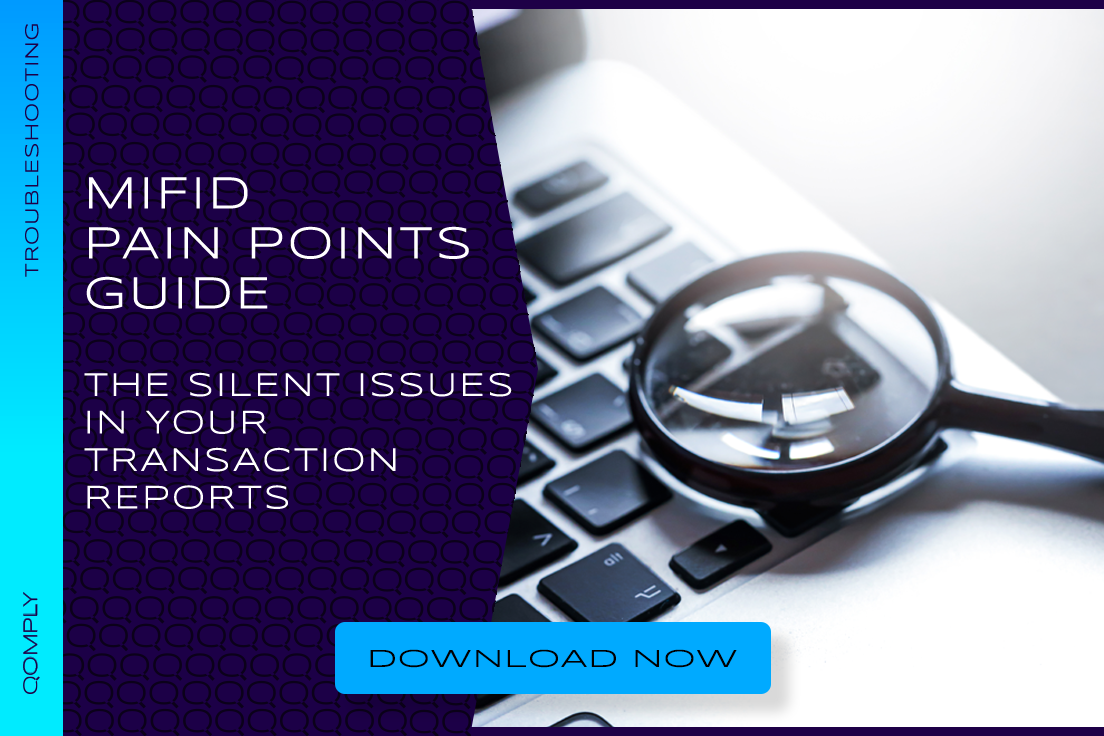Reporting Trading Date and Time
of Transactions Related to Corporate Events
MiFID Transaction Reporting | Troubleshooting
28 April 2022
Across the industry, there appears to be confusion over which date and time to report for transactions initiated and executed as part of a corporate event.
Many firms are not capturing and reporting the time of the completion of the corporate action by the initiating entity.
In many instances, firms are using the execution date and time of the transactions associated with a corporate action. Or, if they do capture the correct date, firms are either specifying midnight or rounding-up the time by padding the minutes and seconds fields with 00:00.
Instead, there appears to be three common mistakes when reporting Field 28 Trading Date Time of the MiFID Transaction report in regard to corporate actions:
1) The time of the completion of the corporate action is denoted as midnight and Field 28 contains 2021-03-01T00:00:00.000000Z
2) The time is rounded-up to the nearest hour, 2021-03-01T10:00:00.000000Z
3) The date and time are noted as the execution time of the transactions resulting from a corporate action as opposed to the completion of the corporate action, itself.
It appears firms struggle with determining what constitutes the actual time of a corporate action and how to effectively capture and transmit that information to the systems producing the transaction reports.
According to ESMA, the expected Trading Date Time "would be the date and time that the corporate action was completed by the entity initiating the event.”
Since most financial institutions deal with corporate events as a back-office function with limited front office interaction, essential information may not be transmitted and/or captured properly by the Front Office Systems. Also, in some cases, there may be a lack of understating of the MiFID requirement to capture the exact time of the completion of the corporate action as opposed to the time the associated transactions were executed. Therefore, when trades are executed, they simply fall through the same reporting framework as other trades and the Trade Date and Time are erroneously reported.
Therefore, firms should ensure their staff are adequately trained to capture and record the specific time of the completion of the corporate action and, in many cases, this may be the date and time of the confirmation of the transaction by the issuer as opposed to the execution of the associated trades.
ESMA clarifies these points in their Q&A on MiFID Transaction Reporting.

